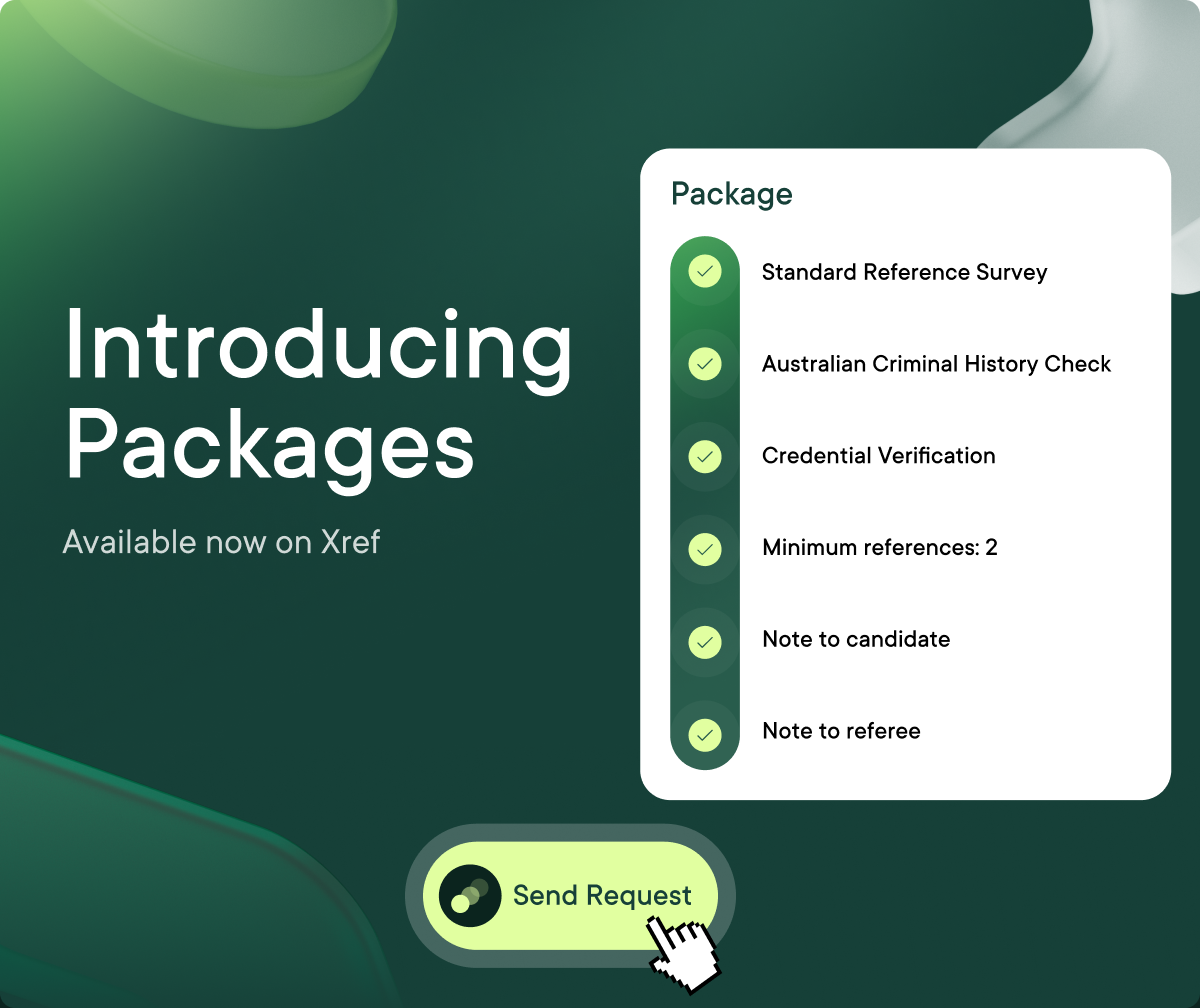


Give your people a voice with a tailored Xref Engage survey.
Increase retention and reduce turnover with quick employee feedback from an Xref Pulse Survey.
When giving written reference check answers, referees tend to feel more accountable for the information they provide and may be more inclined to offer negative feedback or constructive criticism.
Negative feedback may not automatically disqualify a candidate. Still, it can help to understand how to manage an otherwise good candidate and where they may require further development and training.
Following up a bad reference check with a phone call to the reference is a great way to explore negative feedback further. You may also want to talk through any issues with the candidate for balance. Bear in mind that, if a candidate feels they have been inaccurately portrayed, they are entitled to ask you to provide a copy of their referee’s feedback.
It is illegal to ask employment reference check questions that may reveal potentially discriminatory information. This includes questions such as the candidate’s age, whether the candidate has children, the candidate’s marital status and sexual orientation.
This can be very subjective, and it’s essential to be aware of bias. Try to keep job reference questions as similar as possible between candidates applying for the same role so you can make like-for-like comparisons. Using a tech platform like Xref is the only way to ensure consistency in candidate comparison. Xref ensures that exactly the same questions are used for every candidate applying for the same role, and provides a secure, detailed analysis for each candidate to ensure your comparisons are fair, accurate and reliable.
People are usually more likely to take accountability for written references as opposed to feedback given verbally. It’s also easier for references to deflect or give incomplete responses during a phone conversation than when providing written answers to set questions. Using a tech platform like Xref demonstrates that there is an audit trail in place and that any dishonesty is likely to be uncovered.
Reference checking offers an employer valuable opinions and insight into a candidate's professional skills, traits and personality. It is the only stage of the recruitment process that offers third party input to verify or disprove a candidate's claims.
Of course, we cannot guarantee the validity of the comments made in a reference but Xref offers the advantage of monitoring for any red flags that might indicate fraudulent behaviour – something that is simply not possible when conducting references by phone.
When a candidate is asked for a reference, you can never be 100% confident that they will put forward someone who is appropriate or that the contact details they provide are actually those of the person they’ve named.
While we can’t stop candidate’s doing this, Xref can detect when they are trying to trick the system. Our unusual activity feature, which monitors multiple data points during the reference process, will raise a red flag whenever something doesn’t look quite right. It highlights the reasons for the flag being raised, such as the IP address of a candidate being the same as their referee, and offers the employer the opportunity to explore the issue further.
We know there may be occasions when you want to explore a reference response in more detail. For this, we recommend that the last question on your template asks if the reference provider would be willing to receive a call from the prospective employer and, if so, what time they would be available.
More often than not, the reference provider agrees to this and the employer has permission to contact them at a time that works best.
You may also be interested in:
